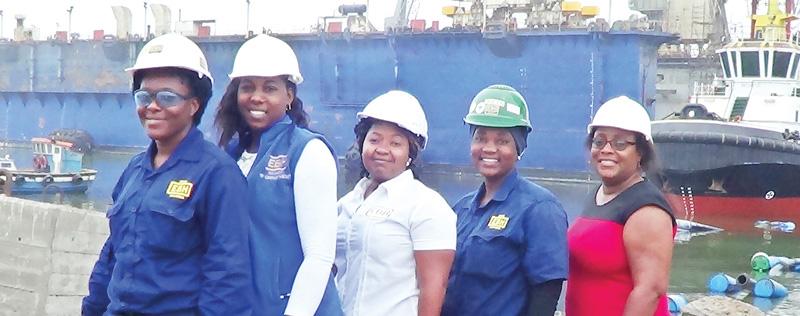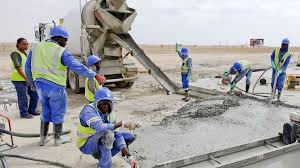
After restructuring, EBH to consolidate market position, focus on growth

EBH Namibia this week sought to put their new round of restructuring in context, and to present more detail on the expected positive outcomes. “This further round of restructuring is indeed very unfortunate due to continuing economic difficulties. However, it is important to understand the other, more positive side of this scenario,” the Walvis Bay drydock operator stated.
“Once again, as in 2016, EBH Namibia is aiming for the absolute minimum number of compulsory retrenchments by offering early retirement and voluntary retrenchment options. This process is furthermore intended to ensure the long-term sustainability and continued viability and survival of the company,” said EBH, adding that the bulk of employees affected by compulsory retrenchments will also be offered fixed-term contracts.
The company is also exploring other options such as the creation of SMEs from which EBH Namibia can contract support on a preferred supplier basis.
EBH Namibia has seen a 50% decline in docking activity in 2016, mostly as a result of low oil prices which impacted clients in the West African oil sector.
Severely reduced revenue forced the company to start an extensive restructuring programme in August 2016 during which 102 employees were retrenched of which 82 chose voluntary retrenchments and only 20 had to take compulsory retrenchment.
“This very low number of compulsory retrenchments bears testimony to the success of EBH Namibia’s co-operation with its union, the MMMC, the Workers’ Representative Committee and the Ministry of Labour, Industrial Relations and Employment Creation,” the company said.
Commenting on their operations during 2017, EBH Namibia stated: “While it is true that EBH Namibia carried out several key maritime that is, non-oil and gas projects ranging from fabrication and Special Periodic Survey work to major repairs (steelwork, pipework, docking and underwater repairs), it should be noted that revenue streams are not constant and that our profit margins and turnover are under enormous pressure in the ongoing effort to remain viable and cost-competitive for our clients.”
“In constantly having to compete against other West African shipyards as the preferred repairer on the West Coast of Africa, EBHN has to be aggressively competitive from a client service and pricing perspective, to continue to attract new projects.”
Describing their operational difficulties, EBH Namibia said their revenue fluctuates from month to month, subject to the prevailing client demand, pricing considerations and type of vessels that are docking. “This results in similarly fluctuating resource requirements; and sometimes to situations in which labour required one month will no longer be required shortly thereafter, as operational requirements are constantly changing in line with market and project demand.”
“Our main objective of the current restructuring process is to successfully reduce administrative overheads achieved through functional and operational realignment and integration, including reduced headcount,” the company stated.
Looking at the broader economy, EBH Namibia pointed out that they are not the only affected company operating at the coast.
“EBH Namibia is therefore hardly the exception – and nor is this second round of restructuring and retrenchments being undertaken lightly, or as a result of mismanagement in any way. This is purely because of the unfortunate ‘knock-on’ effects of the extremely low oil price and the economic difficulties which the offshore repair industry for the oil and gas sector experienced.”
Finally, commenting on former CEO Hannes Uys’s resignation in November 2017, the company said: “Hannes Uys left EBH Namibia well-prepared for future challenges, in a dynamic and resilient manner, thanks to his excellent contribution and strong, ethical leadership during his seven year tenure.”












































